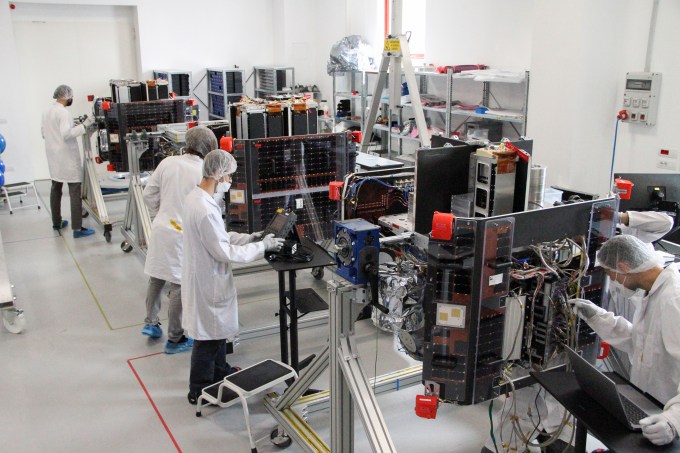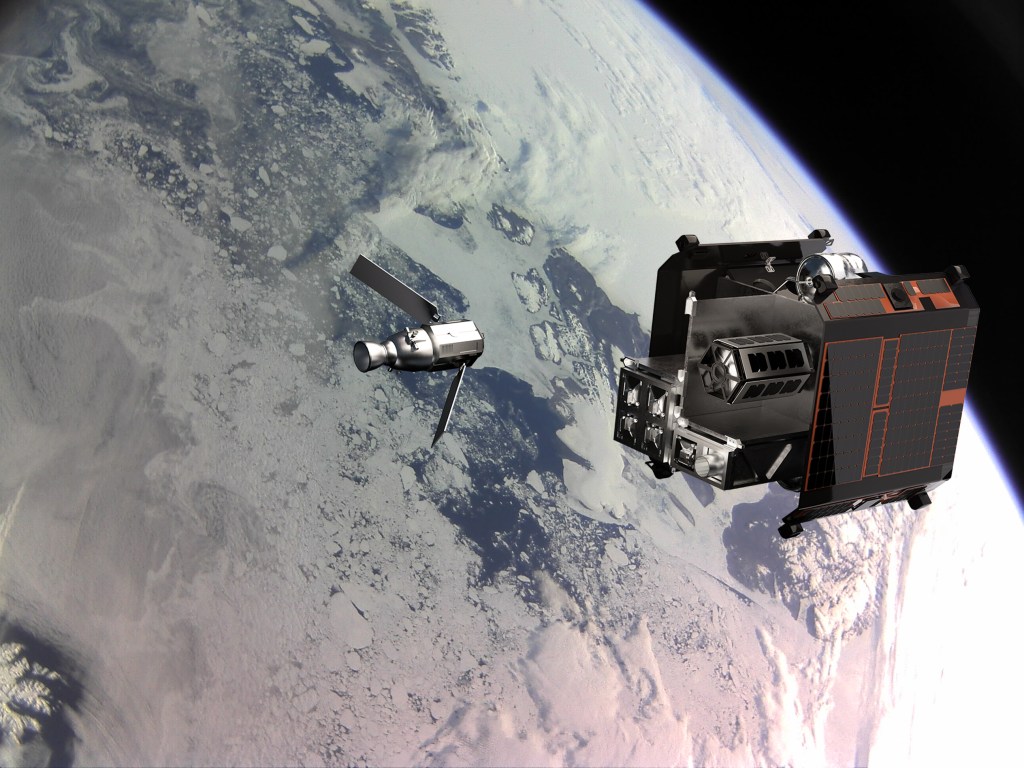Logistics has become the cornerstone of how so much works on earth — we may order things online, but ultimately we need to get products and ourselves from A to B — and some believe that logistics models will be even more important in the remote realms of space. Now, a startup has landed a big round of funding to tap that opportunity. D-Orbit, an Italian startup that provides an array of logistics services for companies operating satellites and other services in space, has raised €100 million ($110 million) in a Series C round of equity funding.
The Milan-based company said another $50 million will be added to the Series C in the first half of this year. The current investment is led by strategic backer Marubeni Corporation out of Japan’s industrial sector, with Avantgarde (a regular investor in the space industry), CDP Venture Capital, Seraphim Space Investment Trust, United Ventures, Indaco Venture Partners, Neva SGR and Primo Ventures also participating. We understand that the company’s valuation is around $500 million with this round.
This investment currently stands as one of the largest raised by a space tech company in Europe and it comes on the heels of the company last year securing some €60 million in contracts from space agencies (a key customer segment, accounting for about half of its overall business today), and triple-digit revenue growth (but no disclosure of revenue numbers).
That’s also a useful turnaround for D-Orbit, which is also registered as a B Corp, after it abandoned plans last year for a public listing on Nasdaq in the midst of a dire IPO market. (That cancellation left some debt, about $20 million, on D-Orbit’s cap table, from a bond that it raised for the listing. The rest of the money it has raised has been in equity, CEO Luca Rossettini said.)
D-Orbit today provides last-mile satellite delivery and related logistics services, mission control as a service to manage already launched spacecraft and hardware, and space waste management services, all aimed at launches that are orbiting the Earth. Its work is a mix of software and hardware development.

Its plan, said Rossettini, who co-founded D-Orbit with COO Renato Panesi, is to continue expanding in all of these areas, and to go even further.
“Our final goal, the long-term vision, is to connect Mars, the asteroid belt, the moon and Earth through a logistics network capable of transporting goods, people and information, even if, for the time being, we are still around here,” he said in an interview.
“Still around here” is meant tongue in cheek, since what D-Orbit is already doing is fairly substantial. Tapping into both government space projects as well as the fast-growing commercial space sector, the company said that it has already deployed 100 satellites across 13 missions and 42 hosted payloads.
Like logistics companies on Earth itself, its selling point is that, for companies operating different services — be they communications, weather analytics, industrial monitoring or something else — their core competencies are in the provision of their services, not in getting a satellite or a sensor on a satellite up into space and managing it once it’s there. D-Orbit claims that its scaled-up delivery and operational model (grouping multiple customers together, and bulk-procurement around launches and other services) saves 40% on costs and 85% on time.
D-Orbit is competing against a small but equally ambitious field. Others in the area of space services include Planet Labs, Privateer, Zenno Astronautics, Astroscale and a variety of others just getting started.
In D-Orbit’s favor, both founders are trained as engineers with expertise in space propulsion, flight dynamics and aerodynamics; and their interests, and awareness of possibilities as well as limitations, are here marrying with some bigger market trends.
Improved hardware, more commercial operators like SpaceX running regular launches of spacecraft and the profusion of new cloud-based services are leading to an increased amount of services that are built around communications architecture situated in the skies.
That potential — D-Orbit cites projections of $1 trillion in revenues by 2030 for the “in-orbit economy” — also comes with a lot of possible pitfalls, of course: costly equipment, tricky unit economics, many opportunities for equipment or launches to fail. That will change how these companies can operate, and raise financing in the future: Just recently Planet announced layoffs of 10% to focus on more immediate ROI opportunities.
For D-Orbit, one of the key ROI opportunities it has identified is to double down on the idea of bringing the circular economy to space technology.
The need here is twofold. One is because of the general responsibility we should have not to simply fill up space with as much waste as we have our planet. The second is a more direct business and safety need: There is so much clutter already in the skies that we are running the risk of some major collisions — costly and dangerous accidents — which can be avoided by cleaning up, removing objects that are no longer in use.
Today, the company already provides a couple of ways to decommission satellites, either by helping them break up in the atmosphere (in the case of low-earth-orbit satellites); or by moving satellites at the end of their life to get out of the way of other active craft by moving them into “graveyard orbit” 300 kilometers farther away, Rossettini said. The plan is to build out two other areas. First, a business where D-Orbit attaches smaller generators to existing satellites that are running out of energy but still have life left in them, to extend their use. Second, a more ambitious idea of a way of offloading satellites to a single place where they can be broken down with the parts reused in future hardware, all being carried out while in orbit.
Rossettini said the latter is currently in development.
“Aerospace is a strategic market in which Italian innovation plays a key role on the international scene,” said Agostino Scornajenchi, CEO and GM of CDP Venture Capital, in a statement. “D-Orbit represents an excellence that in these years has positioned itself as a category leader in the in-orbit transportation segment globally, becoming the first B-Corp certified space company in the world.”































Comment